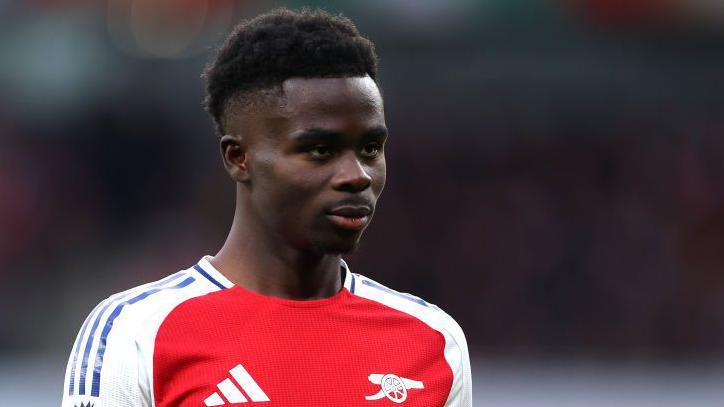News And PoliticsCommunications And EntertainmentSports And FitnessHealth And LifestyleOthersGeneralWorldnewsBusiness And MoneyNigerianewsRelationship And MarriageStories And PoemsArts And EducationScience And TechnologyCelebrityEntertainmentMotivationalsReligion And PrinciplesNewsFood And KitchenHealthPersonal Care And BeautySportsBusinessFamily And HolidaysStoriesIT And Computer ScienceRelationshipsLawLifestyleComedyReligionLifetipsEducationMotivationAgriculturePoliticsAnnouncementUSMLE And MedicalsMoneyEngineeringPoemsSocial SciencesHistoryFoodGive AidBeautyMarriageQuestions And AnswersHobbies And HandiworksVehicles And MobilityTechnologyFamilyPrinciplesNatureQuotesFashionAdvertisementChildrenKitchenGive HelpArtsWomenSpiritualityQuestions AnsweredAnimalsHerbal MedicineSciencePersonal CareFitnessTravelSecurityOpinionMedicineHome RemedyMenReviewsHobbiesGiveawayHolidaysUsmleVehiclesHandiworksHalloweenQ&A
Top Recent
Loading...
You are not following any account(s)
dataDp/1032.jpeg
Worldnews

Israel Intercepts Missile Launched By Yemens Houthis
~1.5 mins read
The incident comes days after Oman said it mediated a ceasefire deal between the US and the Houthi group. Air raid sirens were heard in Israel as a missile was launched towards the territory by Yemen’s Houthis, who say they are retaliating against Israeli sites in solidarity with Palestinians in Gaza. Israel’s military said it intercepted the projectile on Friday using its air defence systems. The incident came days after Oman said it mediated a ceasefire deal between the United States and the Houthis, with the Yemeni group saying the agreement did not include Israel. Houthi rebels fired a “hypersonic ballistic missile” towards Ben Gurion airport near Tel Aviv, while also claiming a drone attack “targeting a vital Israeli enemy target” in the same area, according to the group’s military spokesperson, Yahya Saree. Israeli media reported that air raid sirens were sounded in several areas across central Israel, with people receiving early warning mobile messages about the missile attack. Israeli Defence Minister Israel Katz said that Israel would respond forcefully in Yemen and “wherever necessary”, describing the Houthi missiles as “Iranian”. There were no reports of injuries or damage from the missile attack, according to a military statement. US President Donald Trump announced on Tuesday that his country would stop bombing Yemen as the Houthis had agreed to stop their attacks on US ships in the Red Sea. But the Houthis have continued to fire missiles and drones towards Israel, most of which the Israeli military says it has intercepted, without casualties or serious damage occurring. The Houthis have attacked numerous vessels in the Red Sea linked to Israel and its allies in what they state is an act of solidarity with Palestine. According to Israeli media, the Houthi group has launched 28 ballistic missiles and dozens of drones at Israel since March 18, when Israel resumed its genocidal war on Gaza. Israel has been waging a devastating war on the enclave since October 2023, killing more than 50,000 Palestinians, after a Hamas-led attack into southern Israel that month. Follow Al Jazeera English:...
Read this story on Aljazeera
profile/5170OIG3.jpeg.webp
Healthwatch

Salmonella Is Sneaky: Watch Out
~5.2 mins read
Here's what to know and do to evade bacteria that sickens millions every year.

diarrhea and a fever higher than 102° F
diarrhea that doesn't improve after three days
bloody stools
vomiting so severe it prevents you from keeping liquids down.
adults 65 and older
pregnant women
children under 5
people whose immune systems are weakened by diseases (such as cancer) or treatments (such as immunosuppressing drugs).
Using hot water and soap, wash cutting boards or plates on which you cut into raw foods — including vegetables and fruit — before using those surfaces for other purposes. If possible, use separate cutting boards for produce, meat, and fish.
Refrigerate or freeze foods that are perishable, prepared, or left over within two hours to thwart salmonella growth.
Always wash hands well with soap and water before preparing food and after contact with animals, using the toilet, or changing diapers.
If you have a sick pet, take extra care handling its feces and wash your hands thoroughly afterward.
Don't let young children touch high-risk animals, such as turtles, frogs, chickens, or ducks. "And if you're taking young children to a petting zoo, they should not be petting animals unless you can disinfect their hands immediately afterward," she says.
Older adults and those with compromised immune systems should take extra care to wash and cook foods thoroughly.
People who have had a transplant (such as a kidney transplant) should not keep reptiles or amphibians as pets.

Pop quiz: what is Salmonella? If you've ever had a run-in with this bacteria, you know it can cause a food-borne illness called salmonellosis, a form of food poisoning. But you may not know that Salmonella bacteria sicken an estimated 1.35 million people every year in the United States. What's more, it's the leading cause of hospitalizations and deaths due to food poisoning.
And Salmonella bacteria can be sneaky — not only by triggering unusual complications, but infecting people in startling ways, says Dr. Elizabeth Hohmann, an infectious disease specialist at Massachusetts General Hospital. One patient she treated showed up with an abdominal aortic aneurysm — a dangerous bulge in the lower section of the body's largest artery — that looked infected. Testing revealed a culprit some would find surprising: Salmonella.
"It's just an interesting organism and it can be kind of scary," she says.
How do people get infected by Salmonella?
Many of the foods Salmonella bacteria lurk in are raw or undercooked. Breaded raw chicken products like nuggets and chicken Kiev are one way it may reach your table. But a variety of foods have been implicated — including organic basil, cantaloupes, ground beef, nut butters, raw cookie dough, eggs, raw or unpasteurized milk, and flour.
Backyard poultry are another source of Salmonella outbreaks. Even small pets such as turtles and frogs, along with dog food, have contributed to multistate outbreaks in recent years.
You can also become infected by handling contaminated food and spreading the bacteria from your hands to your mouth. Additionally, you can spread it to others on your hands or even on your clothes without becoming sick yourself.
"It's a bug that's carried in stool and animal feces and is also present in the environment," Dr. Hohmann says. "So it can set up shop in lots of different inanimate objects, soils, and machinery, especially in moist environments."
What symptoms can Salmonella cause?
Most of the time Salmonella infection leads to gastroenteritis, usually causing just an upset stomach, abdominal cramps, and diarrhea. These symptoms can start as soon as six hours after ingesting the bacteria. Typically, symptoms resolve on their own within two to three days.
Some people have such mild symptoms they're barely noticeable. "The classic case might be a college student who eats a burrito from a sketchy place, gets sick for a couple of days, gets better, and doesn't think anything of it," says Dr. Hohmann.
Sometimes symptoms are more serious, such as severe abdominal cramping and bloody diarrhea, or unexplained high fever and marked fatigue. These symptoms require a call to your doctor.
How is salmonellosis treated?
Most people will get better on their own without any medicines. Replacing lost fluids by sipping water or electrolyte drinks to avoid dehydration will help.
Call a doctor if you have
Treating the infection with medicine comes with an annoying paradox, Dr. Hohmann says. If doctors decide to prescribe antibiotics, the person taking the medicine may shed the organism for longer than if they were never treated. "Then that person may have the opportunity — either through poor personal hygiene, sex, or working as a food worker — to spread it to others," she explains. "It's challenging."
What complications can Salmonella lead to?
Some people get sicker with salmonellosis than others, with seemingly no rhyme or reason. But certain folks are especially vulnerable to serious infection, including:
A small percentage of those infected can have Salmonella in their blood, which can spread the infection to other parts of the body such as the urinary tract, bones, joints, or central nervous system (brain and spinal fluid).
And, like Dr. Hohmann's patient with the abdominal aortic aneurysm, on rare occasions Salmonella can lead to unusual blood vessel complications in people who already have atherosclerosis, blockage of the arteries caused by plaque buildup.
What steps can you take to avoid Salmonella?
We all can take steps to avoid the food poisoning, illness, and hospitalizations that Salmonella exposure can cause.
Dr. Hohmann and the CDC suggest these strategies:
Take additional steps to help more vulnerable people stay healthy:
"You hate to make people paranoid, so that we're washing our lettuce leaves with soap, but it's worth thinking about these things, particularly if you have people in your household who are susceptible — which is an increasing number of people," Dr. Hohmann says.
dataDp/1032.jpeg
Worldnews

Updates: At Least 32 Killed In Israeli Attacks On Gaza Today
~0.3 mins read
These were the updates on Israel’s war on Gaza and attacks on the occupied West Bank for Thursday, April 17. Gaza under siege: Palestinians endure shortages and attacks amid Israeli blockade This live page is now closed. You can continue to follow our coverage here. Follow Al Jazeera English:...
Read this story on Aljazeera
dataDp/3575.jpeg
Futbol

Arsenal Set To Open New Contract Talks With Saka
~2.0 mins read
Arsenal are set to open formal talks with Bukayo Saka over a new contract as the forward enters the final two years of his current deal. Saka has been unavailable since December after sustaining a serious hamstring tear in the victory over Crystal Palace at Selhurst Park - an injury that eventually required surgery. But his importance to Mikel Arteta's team remains unquestioned with the club preparing to meet the player's representatives over a contract extension. Arsenal want to avoid any uncertainty regarding their star player's future and will make securing Saka to a longer contract one of their top priorities. The 23-year-old England international signed his current contract - understood to be worth a minimum of £10m per season - in 2022. But that contract is due to expire at the end of the 2026-27 season with early moves towards opening concrete talks already initiated. The process is expected to accelerate in the not too distant future. Clubs across Europe will be intrigued to see how discussions develop, with Saka widely recognised as one of the top attacking talents in European football. Before signing his existing deal, Saka was a subject of interest for Manchester City and there will be no shortage of suitors again if club talks do not go smoothly. But Arsenal will be hopeful that an agreement can be reached given their emergence as title challengers under Arteta, while their continued participation in the Champions League may also be a factor in persuading Saka to re-sign. For now, Saka is focusing on his long-awaited return to fitness after his hamstring operation. Following Sunday's win over Chelsea, manager Arteta said Saka had a good chance of returning soon after the current international break. Arsenal's next game is against Fulham at Emirates Stadium on 1 April. Saka isn't the only Arsenal player entering the final two years, or less, of their current deals. Midfielders Thomas Partey and Jorginho are both out of contract at the end of the season and will leave the Emirates this summer as things stand. Leandro Trossard, who has held talks over a new deal, is out of contract in the summer of 2026. Crucially, Saka, William Saliba and Gabriel Magalhaes - who are all key players for Arteta - will see their deals expire in 2027. On his contractual situation Saliba said earlier this month that formal talks over a new deal were yet to start, but added: "For me, I'm really happy here. I'm happy here and I want to continue here." Magalhaes has also held talks over an extension. The Brazil international is believed to have interest from clubs in Saudi Arabia.
All thanks to BBC Sport
Loading...
 Worldnews
Worldnews
 Healthwatch
Healthwatch
 Futbol
Futbol